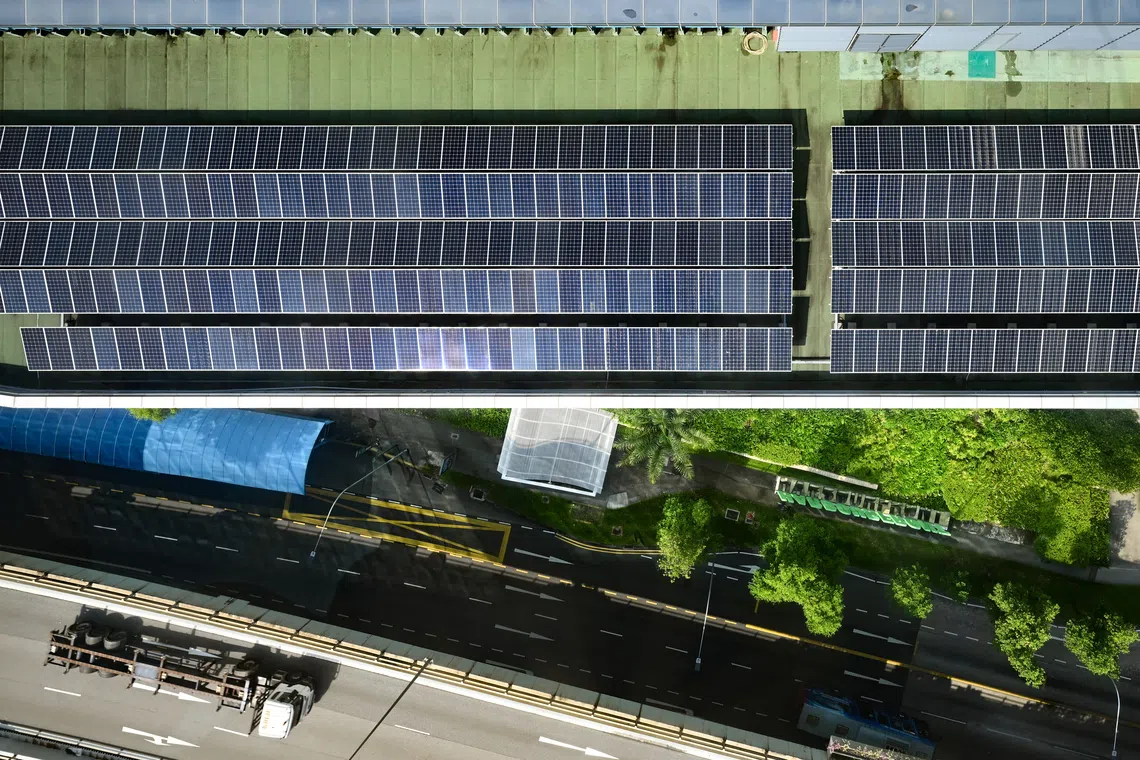Increasing role for philanthropic support in developing countries’ energy transition
Sign up now: Get ST's newsletters delivered to your inbox

Philanthropic capital could be key to paving the way for more capital to come from the private sector.
ST PHOTO: LIM YAOHUI
NEW YORK – The role of philanthropic organisations in financing the transition away from fossil fuels towards cleaner energy sources is getting increasingly prominent, the chief executive of a global energy alliance recently told The Straits Times.
This is important as philanthropic capital could be key to paving the way for more capital to come from the private sector.
Until now, the funders of the energy transition have been mainly the private and public sectors, such as governments or multilateral development banks, said Mr Um Woochong, CEO of the Global Energy Alliance for People and Planet (GEAPP).
At the New York Climate Week in September, there was a greater enthusiasm among participants for the alliance’s goal of roping in philanthropic support to tackle climate change, he said in an interview on the sidelines of the sustainability event.
“With our alliance, we’re trying to mobilise and aggregate support from philanthropies in a collective way to contribute to the global agenda on climate,” he told ST.
“Last year (at New York Climate Week), I felt that people were saying that that was nice, and good for you. But this year, even though our narrative hasn’t changed, there was such an enthusiasm for it,” said Mr Um, who took on his current role at GEAPP in 2024.
Mr Um, who was managing director general at the Asian Development Bank, said one possible reason for this shift was the recognition from energy sector players that the financing gap for the energy transition is large and getting bigger.
At the same time, the current political atmosphere was not conducive for climate investments, he noted, with official direct assistance – government aid that targets the economic development and welfare of developing countries – “reducing from every angle”.
The GEAPP, created in 2021, is a Washington-based alliance of governments, businesses, investors, development banks, community groups and philanthropic organisations.
It works with developing countries in Asia, Africa, Latin America and the Caribbean to boost green energy access for communities, including those that lack access to reliable and affordable energy.
GEAPP’s philanthropic partners include the African Climate Foundation, Mastercard Foundation, and Rockefeller Foundation.
South-east Asia needs to increase clean energy investments to US$190 billion (S$246 billion), about five times the current level, by 2035 to achieve its climate goals, the International Energy Agency said in 2024.
Philanthropic capital is considered critical in the fight against climate change as it can de-risk green investments that make it easier for other players, whether the private sector or multilateral development banks, to come in with more funding.
This is the concept of blended finance, which generally starts with the use of concessional capital – such as from philanthropic funds or funding from development banks – to get the private sector to invest in projects.
Such projects can contribute to climate action or nature conservation, but may not otherwise attract commercial funding due to perceived high risks or low returns. The involvement of philanthropic capital can thus make such projects more likely to happen as philanthropies have a greater willingness to accept lower returns, or even losses.
Singapore has a national blended finance initiative dubbed Financing Asia’s Transition Partnership (Fast-P)
The aim of Fast-P is to bring together public, private and philanthropic capital to help finance Asia’s green transition, with the aim of eventually raising up to US$5 billion from these sources.
GEAPP said it is contributing philanthropic capital, its experience in energy transition, and a coalition of committed partners, towards Fast-P.
Mr Um added that philanthropic capital, which is more flexible than funds from the other funding pots, can play a role in demonstrating that first-of-its-kind projects can work.
“But that can only be possible if we can actually bring all the philanthropies together, because if everyone’s doing (things on their own), there’s a lot of overlap and it can be labour-intensive,” said Mr Um.
“So if we can bring everybody together and remove duplication, we can do much more in a bigger way. So there’s a very strong sense of the need for us to play this role,” he added.
Mr Um pointed out that profit-driven firms tend to take on projects in developed markets. In developing regions, the developmental needs are in the trillions of dollars, he said.
“But when you talk to bankers, they say there are no projects. That doesn’t mean there are no projects – it means there are no bankable projects.”
He noted that philanthropic capital is not as large as funds from the development banks or the private sector.
But, Mr Um said, “if philanthropies and multilateral development banks can come together, that can help with the financial risk position that others cannot take, and that will hopefully unlock billions of dollars”.



